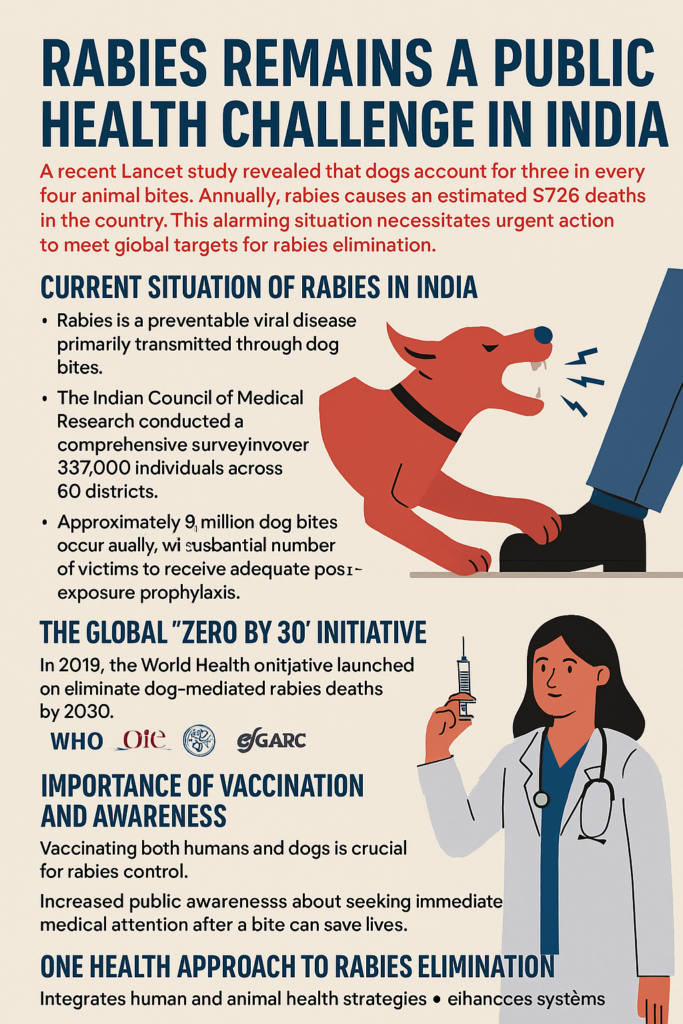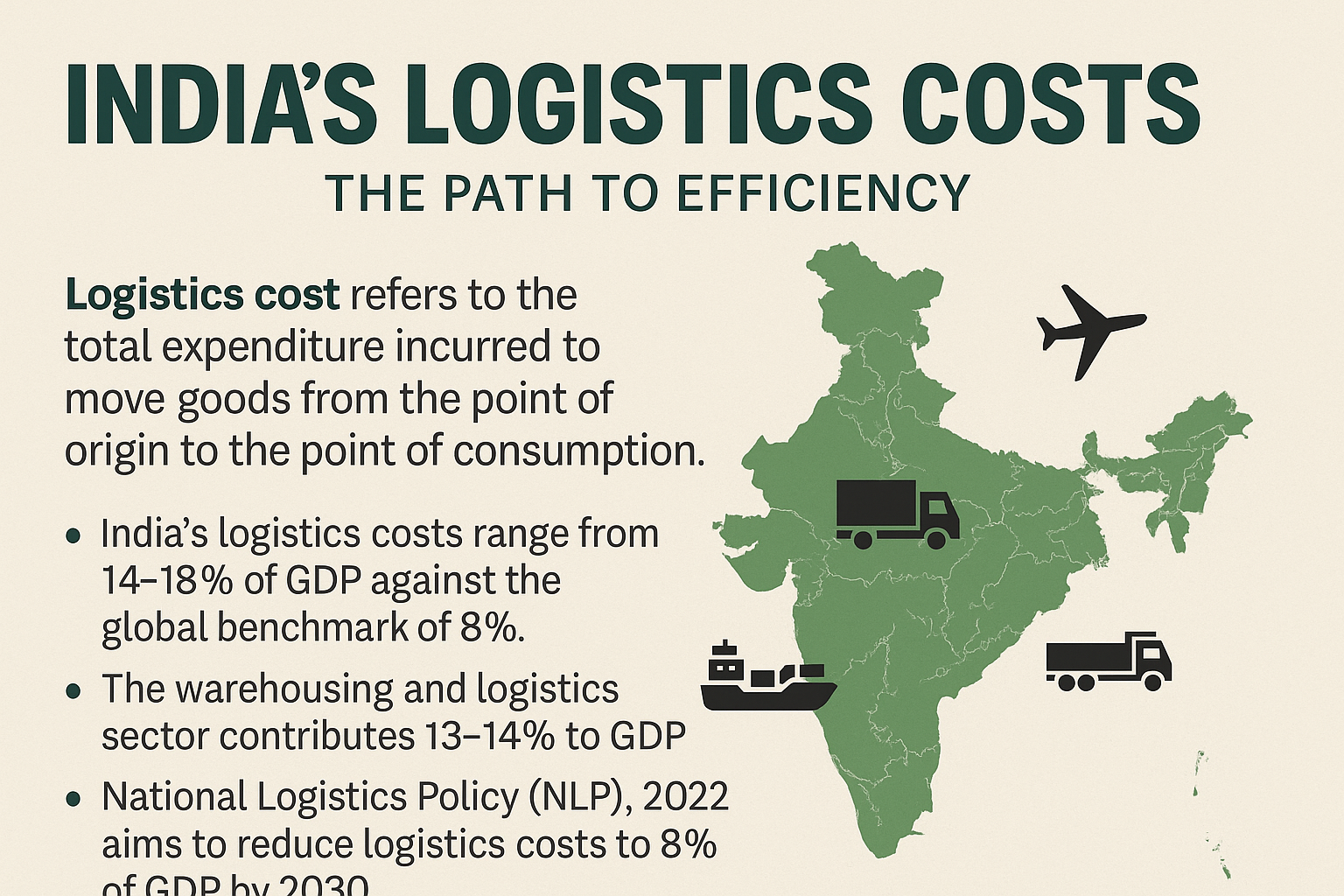085.
🐾 PUBLIC HEALTH | RABIES AWARENESS
Rabies in India: A Preventable Crisis in Need of Urgent Action
Rabies remains a significant public health challenge in India. A recent Lancet study revealed that dogs are responsible for three out of every four animal bites. Annually, rabies causes an estimated 5,726 deaths in the country — a tragedy that is entirely preventable with the right interventions.

Current Situation of Rabies in India
- Rabies is a viral disease, primarily spread through dog bites.
- According to the Indian Council of Medical Research:
- Over 9.1 million dog bites occur annually.
- Many victims do not receive full post-exposure prophylaxis (PEP).
- Inadequate awareness and treatment gaps continue to cost lives.
The “Zero by 30” Global Goal
- In 2018, the World Health Organization (WHO) launched the “Zero by 30” initiative.
- Objective: Eliminate all dog-mediated human rabies deaths by 2030.
- Key partners: WHO, OIE, FAO, GARC.
- Strategy includes mass dog vaccination, awareness campaigns, and timely access to vaccines for humans.
Why Vaccination & Awareness Matter
- Dog vaccination breaks the transmission cycle.
- Human PEP after a bite is crucial to survival.
- Despite vaccine availability, many do not complete the course due to cost, access, or lack of awareness.
The One Health Approach
- Combines human and veterinary health systems.
- Promotes coordinated surveillance, joint resource use, and fast response.
- Especially effective for zoonotic diseases like rabies.
Challenges & What Needs to Change
- India lacks reliable, consolidated data on rabies deaths.
- Focused interventions, including community education, accessible healthcare, and mass dog vaccination, are vital.
- A unified effort across health sectors will be key to ending rabies fatalities.















